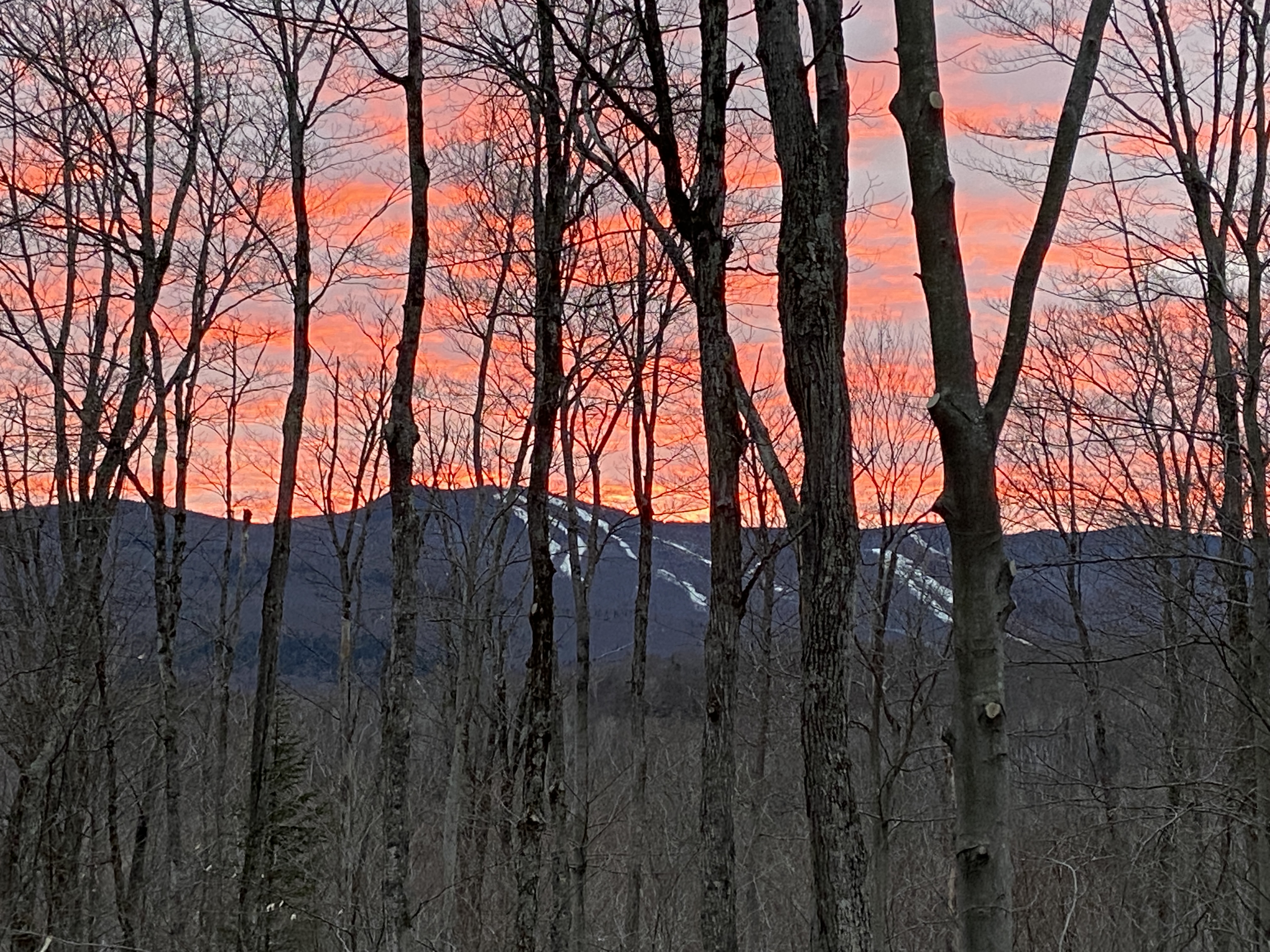It had been almost six weeks since we left our Hell’s Kitchen sublet in NYC. Broadway had shut down, the university had gone remote, and the world as we knew it had changed forever. It was a Friday night, as I sat nestled in my Adirondack chair, savoring every moment from my front row seat, waiting for the sunset over the Laurentians. It had become a nightly practice, and, on the weekends, a festive ritual that I shared with my husband — the only person I had any physical contact with since we got there. Nature’s pre-show had just begun when a fast-moving cloud scudded by in my peripheral, drawing my eye away from the mountain. I delighted as the puffy white cloud turned pink like cotton candy, catching the light just so.
I waxed philosophical as the phrase “this too shall pass” came into my head and, although aware of the old adage’s ability to bring comfort during difficult times, I wondered what it meant to me.
When King Solomon sent his humble servant on the impossible quest to find the magical ring that could make a sad man happy and a happy man sad, he was astonished when months later, his servant returned with the ring. Ordinary and unadorned, the ring was simply engraved with the words “this too shall pass”. I thought about the fable that is so often associated with the message that fortune means nothing in the end. And, although there is great wisdom in that, I felt moved to dig deeper.
When situations are bad, we just want them to be over. To go back to the way it was, when things were better. Or, at least in retrospect, they seemed better. Weren’t they? Heck, anything seems better when we are feeling this way! When something negative happens, the only way we “know” it’s negative is in reference to something else. We rely on comparison to rate how we feel about our situations, our choices, and, most insidiously, how we rate ourselves.
If the person that is unhappy with his life is comforted by “this too shall pass”, what of the person who is happy with his life? Does this phrase make him sad?
The cloud continued on its journey, drifting out of sight to reveal a clear sky. I felt grateful for this moment, and an overwhelming sense of joy overcame me as I thought about how wonderful these six weeks had been. I felt wistful for a moment too, as a melancholy threatened to rise up in me. “This too shall pass” I thought. I turned back to look at the sun setting over the mountains, and vowed to savor every moment.
A month later now, and we are back at home, “reintegrating” into civilization. Despite the obvious and legitimate threat associated with the virus that quarantined the world, as the curve slowly begins to flatten, and the winter quickly fades into spring, I’m noticing an interesting shift in perspective from people around me.
More and more I’m hearing friends and colleagues (many of whom have experienced significant loss during this time) looking past what they’ve lost, and focusing more on what they’ve gained through this experience. They are thinking out loud about how they might develop these new insights, and apply them to creating a new approach to their life. One that more closely aligns with their values.
I find myself musing again about the “this too shall pass” fable, and its message that fortune means nothing in the end. It occurs to me that, defined as money or assets, this precept rings true. I would argue though, that the other definition of fortune “chance or luck as an external, arbitrary force affecting human affairs“ more clearly depicts the opportunity that this once in a lifetime event has offered us.
The chance to reflect, refresh, and maybe even reframe how we choose to “spend” our short time on this planet. It may very well be the most valuable asset we possess.
I catch myself feeling melancholy around dusk sometimes, recalling the sunsets under quarantine. If I close my eyes, I can almost feel the last rays of the winter sun touching my skin. Then, I remind myself that happiness is not defined by where I am, or what I do. Those things will – and do indeed- pass. So, I remind myself that fortune lies within me, and while it may or may not mean anything in the end, its up to me to recognize its value.


